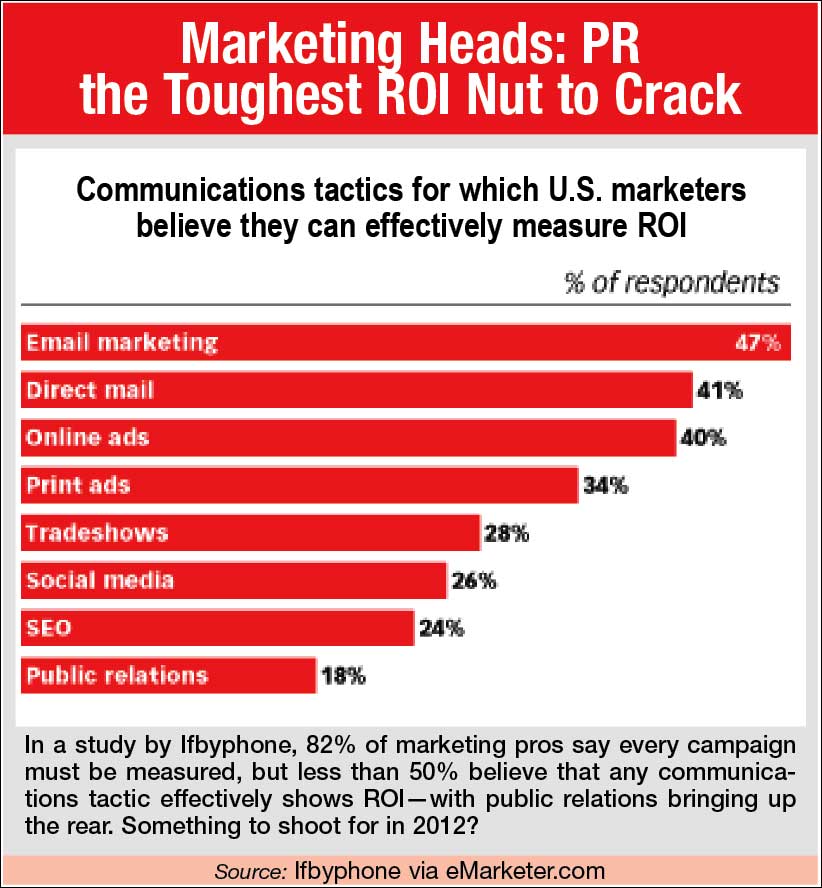 |
â–¶ Business Leaders Talk Up PR: With faith in business and government institutions waning and the reputations of even the most venerable brands at risk, corporate communications has emerged as an essential skill set for C-level executives, says a PRSA/MWW Group study released in December 2011. In fact, 93% of business leaders of 204 companies polled believe public relations is just as important to their companies as other forms of communication, including advertising and marketing.
Where this data takes PR in 2012 is anyone’s guess, given the fact that marketers find public relations to be the toughest discipline to measure ROI (see chart on this page). Other PRSA/MWW study findings include:
• 97% of business leaders surveyed think CEOs themselves should understand the role of corporate reputation management; and 98% think it’s important for other C-level executives to have a working knowledge of basic PR skills.
• 98% believe that business schools should incorporate instruction on corporate communications and reputation management strategy into MBA curricula.
• Nearly all business leaders (98%) believe it will be important in the future for corporations to have senior managers with a working knowledge of building and protecting a company’s credibility. And 96% say it also will be important for these individuals to have a working knowledge of building and protecting a company’s reputation.
Source: PRSA/MWW Group
â–¶ Media Relations/Influencer Communications Role of Big Three Social Sites Increases: More than 70% of online media journalists and other content contributors now interact with PR professionals through popular social media sites such as Twitter and Facebook and LinkedIn, according to a survey of North American online media conducted by Cision and Syracuse University’s S.I. Newhouse School of Public Communications, released in December 2011.
The study of more than 1,000 digital influencers confirmed that Twitter and Facebook presences are essential to online journalists—as well as those writers, bloggers, editors, academics, PR and communicators professionals and consultants who create online content but do not identify themselves as journalists. Specific findings include:
• 73% of the journalists say they interact with PR professionals on social media, with most of that interaction happening on Twitter, Facebook and LinkedIn.
• 69% of other digital influencers engage with PR pros via those sites, although they also rely more on blogs and other social media platforms such as YouTube, Flickr and Posterous.
• 63% of respondents also said they welcome story pitches and ideas sent through social publishing sites; and 87% of journalists and 85% of other content creators said they maintain a Twitter presence for their blogs or news Web sites.
Source: Cision/S.I. Newhouse School of Public Communications
